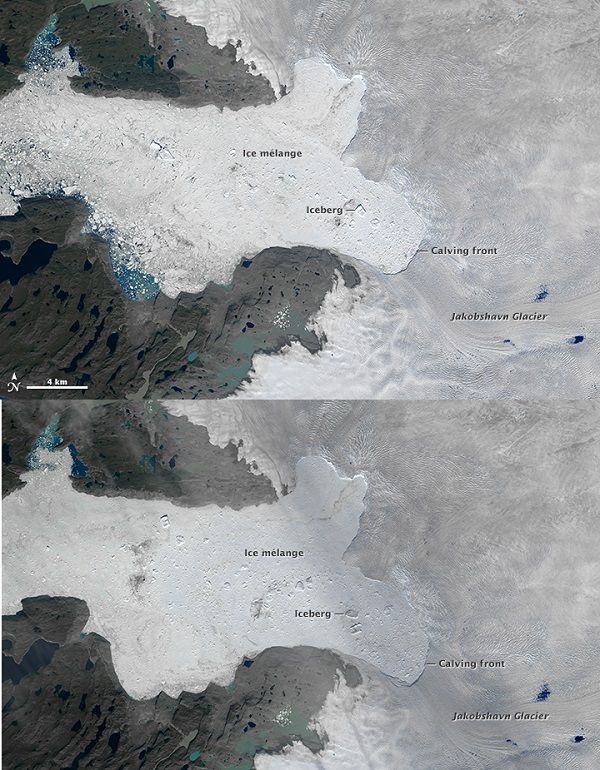One of the fastest-melting glaciers may have broken record
Digital Reporter
Sunday, August 23, 2015, 6:50 PM - Satellite images show how within two days Jakobshavn, Greenland's fastest-melting glacier, appears to lose a huge chunk of ice.
In fact, some observers have speculated that the area of ice lost could be the largest on record.
The images posted on the Arctic Sea Ice Blog, show the glacier between August 14 and 16.
However, NASA reports these estimates are preliminary and before and after satellite images cannot fully explain whether the ice was lost all at once or through a series of smaller events.
![]() RELATED: Here's how climate change helps melting glaciers feed ocean
RELATED: Here's how climate change helps melting glaciers feed ocean
NASA's Operational Land Imager on the Landsat 8 satellite also captured images showing Greenland's sudden loss of ice, also known as a calving, between July 31 (top) and August 16 (bottom).

NASA notes this glacier alone could contribute more to sea level rise than any other single feature in the Northern Hemisphere.
On the topic of melting ice, a polar bear in Norway is raising concern about climate change after it broke the record for the longest underwater dive.
"The calving events of Jakobshavin are becoming more spectacular with time, and I am in awe with the calving speed and retreat rate of this glacier," Eric Rignot, a glaciologist at the Jet Propulsion Laboratory said in NASA's Earth Observatory report. "These images are a very good example of the changes taking place in Greenland."
At the end of ever summer for the last several years, University of Washington glaciologist Ian Joughin has examined Jakobshavin's calving front move about 2,000 feet farther inland than the summer before, according to the Observatory report. To put things into perspective, the glacier moved almost three times faster in 2012 than it did in the mid-1990s.
A combination of increasing air and ocean temperatures are believed to be the reason why the glacier's ice loss has sped up so much.
Source: NASA | Arctic Sea Ice Blog



